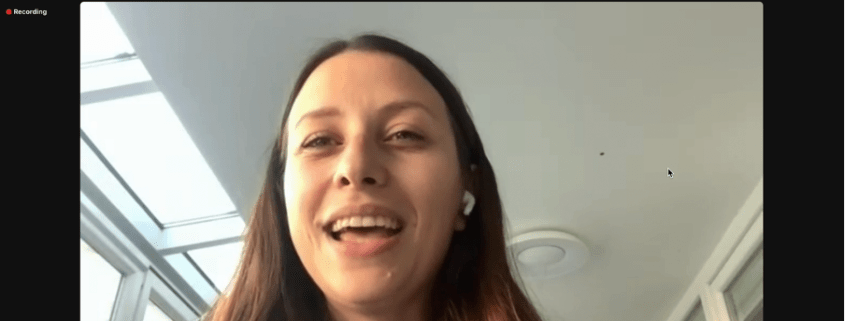On Tuesday, 17 May 2022, MEP Irena Joveva was invited by Europe Direct Zasavje to participate in a discussion with young people on digitisation and distance learning during the COVID-19 epidemic. The event was organised as part of the European Year of Youth. Joveva stressed, in particular, that she would wish both the European Parliament and the Slovenian school system to preserve the good technological gains made over the last two years.
The young participants began by presenting their experience from the period and describing how they had managed to cope with distance learning. Asked about the advantages of distance learning, they pointed out that there was no need to travel to the place of study and that in many cases professors put more effort into lectures than they do in the classroom. Furthermore, distance learning has exposed young people to new online tools and ways of working that they were previously unfamiliar with.
On the other hand, the biggest disadvantage of distance learning was the lack of socialising and the inability to spend time together. They added that not all teachers and professors knew how to use modern technology, which meant that some lectures were of poorer quality and as a result they had to do a lot by themselves.
According to the young audience, the key factor underpinning the success of distance learning is a stable internet connection. They stressed that the lack of financial resources for IT equipment can leave many students mentally distressed because they are unable to afford it. This assessment of the situation was echoed by the MEP, who added that the epidemic had worsened the mental state of young people in general, and that this issue has only recently come to the forefront of various policy debates.
 During the discussion, some young people pointed out that a lot of new equipment has been purchased for distance learning, which schools and universities could also use in the future. Joveva agreed, believing that the benefits of the technological advances made during the epidemic should be preserved to the greatest extent possible. She mentioned the example of electronic voting introduced in the European Parliament, which has made it possible to better monitor the votes cast by MEPs, making voting fully transparent. In her view, this allows for a more democratic and fairer approach.
During the discussion, some young people pointed out that a lot of new equipment has been purchased for distance learning, which schools and universities could also use in the future. Joveva agreed, believing that the benefits of the technological advances made during the epidemic should be preserved to the greatest extent possible. She mentioned the example of electronic voting introduced in the European Parliament, which has made it possible to better monitor the votes cast by MEPs, making voting fully transparent. In her view, this allows for a more democratic and fairer approach.
Joveva also finds it unacceptable that so many young people still do not have access to the internet, computers and other basic IT equipment. The main actor in this respect is the state, as it has the power to regulate the school system.
“I want everyone to have access to IT equipment and other electronic devices by 2022.”
The young participants went on to express their wish to see the teaching materials converted into electronic versions, as this would make them more accessible to all pupils and students.
At the end of the event, Joveva thanked everyone for their comments and insights, and especially welcomed the concept of the event that was truly youth-centred and did not just provide a platform for the monologues of political decision-makers. She stressed that she would be happy to participate in similar events in the future and introduced the Ideas Transcending Boundaries website to the young participants.





Leave a Reply
Want to join the discussion?Feel free to contribute!